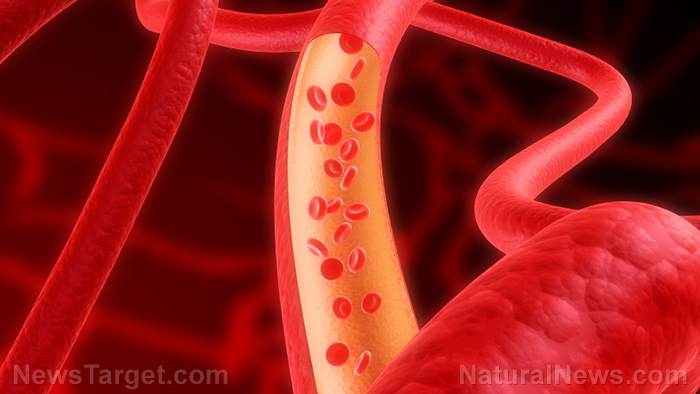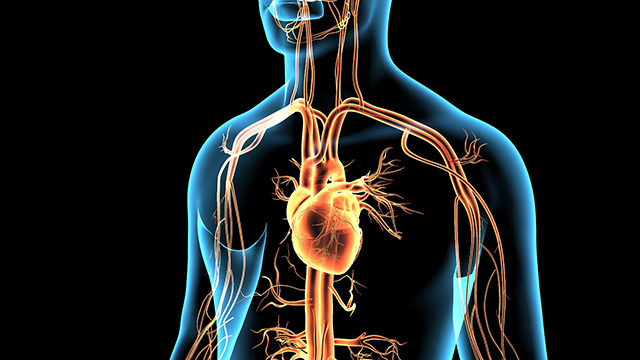Aged garlic is incredibly good for your heart
03/09/2019 / By Edsel Cook

The greatest bane of health and life in the United States can be prevented by consuming a common kitchen herb. Heart disease can be avoided by eating aged garlic, which contains natural compounds that support the healthy functions of the cardiovascular system.
Aged garlic exerts a number of beneficial effects that benefit the heart directly and indirectly. For instance, it keeps plaque from building up within artery walls. By preventing this atherosclerosis, it reduces the chances of cardiovascular disease.
A 2016 study conducted by Los Angeles Biomedical Research Institute (LA BioMed) administered the extract of aged garlic to middle-aged and older participants who suffered from metabolic syndrome. This syndrome is a collection of health problems that includes excess levels blood glucose, blood pressure, cholesterol, and obesity.
The researchers found that the aged garlic extract cut back on the low-attenuation plaque that appeared in the arteries of the patient. Furthermore, participants who took the extract displayed up to 80 percent less total plaque in their blood vessels.
The LA BioMed researchers concluded that garlic not only decreased the amount of plaque in the arteries. The extract also stopped new plaque from appearing in the blood vessels. (Related: Aged garlic extract balances your cholesterol levels, study finds.)
Aged garlic effectively reduces the risk factors that lead to heart disease
An earlier study by another LA BioMed research team showed that aged garlic could achieve the same plaque-reducing effects in people who experienced significant stress due to their jobs. The participants of this 2013 study were all firefighters with slight to medium plaque levels in their bodies, and they took coenzyme Q10 alongside garlic extract.
The researchers noted that treated participants showed reduced levels of C-reactive protein. Untreated subjects, on the other hand, experienced sharp increases in that protein.
C-reactive protein served as a warning sign for inflammation. High levels of the protein translate to appropriately high levels of inflammation, which in turn is connected to heart disease and a lot of chronic degenerative disease.
Further evidence of aged garlic’s ability to reduce the risk of heart attacks comes from more than one animal study. The extract did not just throttle down the production of the inflammation-triggering cytokine interleukin. It also lowered the amount of an amino acid called homocysteine, which is associated with a greater chance of cardiovascular disease.
Garlic isn’t just good for your heart, but for your vascular system as well
Garlic supports the healthy activity of the flimsy endothelium that covers the arterial walls. It also makes the blood vessels more flexible and less prone to fragmenting.
The herb holds large amounts of polysulfide compounds. They activate the production of additional nitric oxide, which relax the blood vessels and cause them to dilate more.
It is also a natural blood thinner. It keeps blood platelets from clumping together into a deadly clot that can block an important blood vessel. When combined with the greater dilation of the blood vessels, this further reduced the chances of a stroke.
The ability to increase the dilation of arteries provide a further health benefit – it lowers blood pressure to safer, healthier levels. Garlic can reduce both systolic and diastolic blood pressure by a considerable margin.
Studies have likened the efficacy of aged garlic extract to pharmaceutical drugs that are prescribed for patients with high blood pressure.
Last but not least, aged garlic decreases cholesterol, which is linked to its earlier ability to stop the formation of plaque in blood vessels. And all it takes to get these benefits is to eat a medium-sized clove of garlic each day.
Sources include:
Submit a correction >>
Tagged Under:
aged garlic, anti-inflammatory, cardiovascular health, food cures, food is medicine, food science, garlic, heart attack, heart disease, heart health, herbal medicine, natural cures, natural medicine, prevention, research
This article may contain statements that reflect the opinion of the author
RECENT NEWS & ARTICLES
HeartDisease.News is a fact-based public education website published by Heart Disease News Features, LLC.
All content copyright © 2018 by Heart Disease News Features, LLC.
Contact Us with Tips or Corrections
All trademarks, registered trademarks and servicemarks mentioned on this site are the property of their respective owners.



















